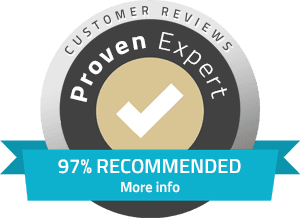SEO, or Search Engine Optimization, plays a crucial role in both website development and digital marketing. Here’s how SEO intersects with these fields:
SEO in Website Development
Technical SEO:
Site Structure: Ensuring the website structure is crawlable and user-friendly.
Page Speed: Optimizing load times for better user experience and search engine rankings.
Mobile-Friendliness: Developing responsive designs that work well on all devices.
SSL/HTTPS: Implementing secure connections to boost trust and SEO rankings.
XML Sitemap: Creating and submitting sitemaps to assist search engines in indexing.
On-Page SEO:
Content Optimization: Developing high-quality, relevant content that incorporates targeted keywords.
Meta Tags: Writing optimized title tags, meta descriptions, and headers for each page.
URL Structure: Creating SEO-friendly URLs that are descriptive and include keywords.
Internal Linking: Strategically linking pages within the site to improve navigation and distribute link equity.
Image Optimization: Adding descriptive alt text, optimizing file names, and compressing images for faster load times.
User Experience (UX):
Navigation: Designing intuitive navigation that helps users find information easily.
Readability: Ensuring content is easy to read and formatted well.
Engagement: Incorporating interactive elements and calls-to-action to encourage user interaction.
Mobile Optimization: Prioritizing mobile users by designing responsive layouts and mobile-specific features.
SEO in Digital Marketing
Keyword Research:
Identifying relevant keywords and phrases that potential customers use to find products or services.
Using tools like Google Keyword Planner, SEMrush, or Ahrefs to discover search volume, competition, and related keywords.
Content Marketing:
Creating valuable content (blogs, articles, videos, infographics) that aligns with user intent and incorporates targeted keywords.
Optimizing content for search engines while providing value to users to improve rankings and drive organic traffic.
Link Building:
Acquiring high-quality backlinks from authoritative websites to improve domain authority and search engine rankings.
Strategies include guest blogging, digital PR, and content promotion to attract natural links.
Local SEO:
Optimizing for local search results to attract nearby customers (e.g., local citations, Google My Business optimization, local content).
Targeting location-based keywords and ensuring consistent NAP (Name, Address, Phone Number) information across platforms.
Analytics and Reporting:
Monitoring SEO performance using tools like Google Analytics, SEMrush, or Moz to track traffic, conversions, and keyword rankings.
Analyzing data to identify trends, measure ROI, and make data-driven decisions for ongoing optimization.
Importance of SEO in Website Development & Digital Marketing
Visibility: SEO helps improve a website’s visibility in search engine results pages (SERPs), attracting more organic traffic.
Authority: By implementing SEO best practices, websites can build authority and trustworthiness in their industry.
User Experience: Optimizing for SEO often leads to improved user experience, which can reduce bounce rates and increase conversions.
Long-Term Results: SEO efforts can provide long-term benefits, unlike paid advertising that stops delivering results once the budget runs out.
Cost-Effectiveness: Organic search traffic generated through SEO is generally more cost-effective compared to paid advertising.
- +91 8300 665471
- info@vestaoneup.com



